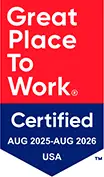Drug and alcohol violations on track for new high
October 6, 2022
The Federal Motor Carrier Safety Administration (FMCSA) just released its Drug and Alcohol Clearinghouse monthly summary report for August 2022. What it reveals is a worrisome trend in the number of violations that have been reported to the Clearinghouse since January 6, 2020.
The Clearinghouse reports 55,283 total drug and alcohol violations for the first year of its existence. The following year, total violations jumped 9.5 percent, increasing to 60,544. By the end of August 2022, the Clearinghouse had already received 48,312 reports of drug and alcohol violations. If the rate of violations stays consistent for the rest of the year, 2022 is on track to see over 72,000 violations, which is an almost 20 percent increase over last year.
Marijuana remains the number one substance identified in positive drug tests, accounting for close to 60 percent of the substances found. This may indicate a need for stronger messaging to drivers that marijuana is a Schedule I drug that is always prohibited for CDL drivers. Medical and recreational marijuana use, although it may be legal depending on the state, is still a violation for CDL drivers per §382.213. Drivers should also be aware that CBD oil can cause a driver to test positive for THC. Even though CBD oils are often labeled with the percentage of THC they contain, the oils are not regulated by the Food and Drug Administration (FDA), so there’s no guarantee that the percentage indicated by the manufacturer is accurate.
CDL drivers who commit a drug or alcohol violation must be pulled from performing safety-sensitive functions, including driving any commercial motor vehicle (CMV) — including non-CDL CMVs — until they successfully complete the substance abuse professional (SAP) process, pass a return-to-duty test, and the “prohibited” status is removed from their Clearinghouse record.
October 6, 2022
Author{not populated}
TypeIndustry News
IndustriesTransportation
Related TopicsDrug and Alcohol Testing - DOT
Governing BodiesFederal Motor Carrier Safety Administration (FMCSA), DOT
Citationsr49CFR382


